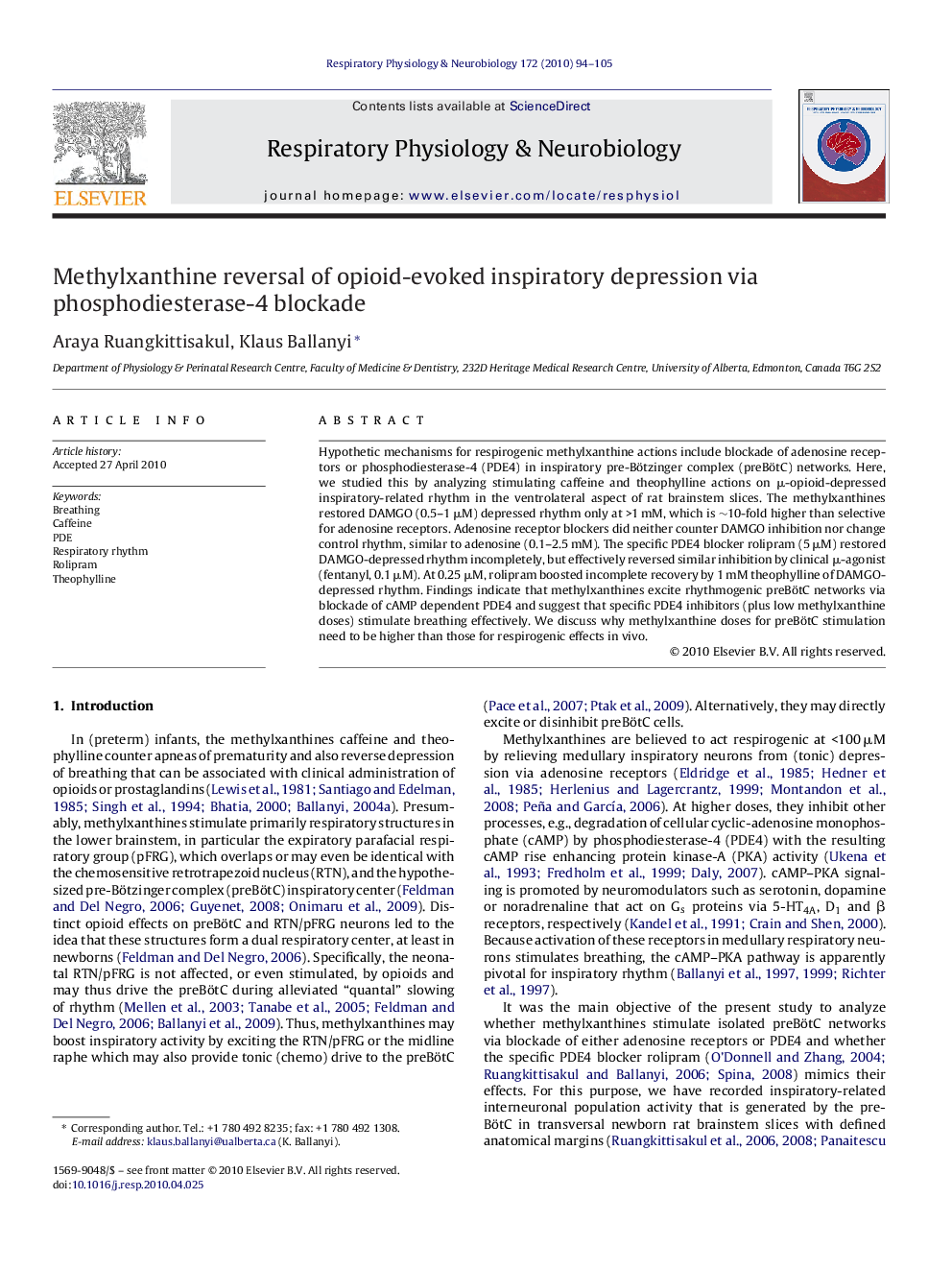| کد مقاله | کد نشریه | سال انتشار | مقاله انگلیسی | نسخه تمام متن |
|---|---|---|---|---|
| 2847623 | 1167378 | 2010 | 12 صفحه PDF | دانلود رایگان |

Hypothetic mechanisms for respirogenic methylxanthine actions include blockade of adenosine receptors or phosphodiesterase-4 (PDE4) in inspiratory pre-Bötzinger complex (preBötC) networks. Here, we studied this by analyzing stimulating caffeine and theophylline actions on μ-opioid-depressed inspiratory-related rhythm in the ventrolateral aspect of rat brainstem slices. The methylxanthines restored DAMGO (0.5–1 μM) depressed rhythm only at >1 mM, which is ∼10-fold higher than selective for adenosine receptors. Adenosine receptor blockers did neither counter DAMGO inhibition nor change control rhythm, similar to adenosine (0.1–2.5 mM). The specific PDE4 blocker rolipram (5 μM) restored DAMGO-depressed rhythm incompletely, but effectively reversed similar inhibition by clinical μ-agonist (fentanyl, 0.1 μM). At 0.25 μM, rolipram boosted incomplete recovery by 1 mM theophylline of DAMGO-depressed rhythm. Findings indicate that methylxanthines excite rhythmogenic preBötC networks via blockade of cAMP dependent PDE4 and suggest that specific PDE4 inhibitors (plus low methylxanthine doses) stimulate breathing effectively. We discuss why methylxanthine doses for preBötC stimulation need to be higher than those for respirogenic effects in vivo.
Journal: Respiratory Physiology & Neurobiology - Volume 172, Issue 3, 31 July 2010, Pages 94–105